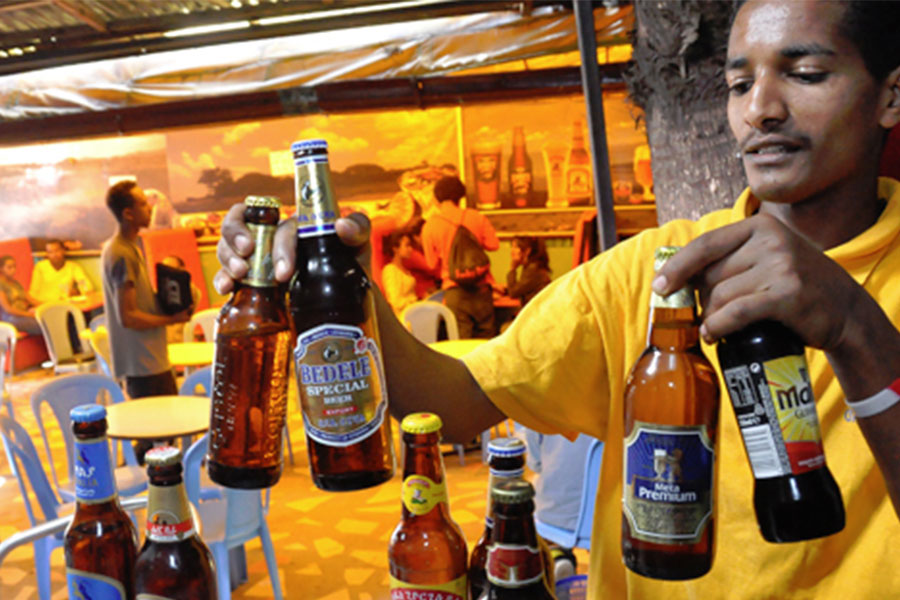
Agenda | Feb 02,2019
Half a dozen workers were lounging on a bench outside a factory shed on the outskirts of Addis Abeba during working hours last week. The company's expansive compound on 10hct of land does little to resemble a plant in active operation. Inside the factory, a lanky man dressed in a blue gown and wearing a facemask was closely monitoring the activities of five employees. He did not spare a thought for another three who stood behind a production line fiddling with their phones.
"Why would I bother them?" asked Seyoume Begashaw, who has worked as a supervisor at the Tsehay Industries S.C. since 2016. "There isn't much to do around here."
Seyoume earns a salary of 10,000 Br but says the slowdown at the factory keeps him from making more. During the company's initial years of operation, he used to receive a per diem equivalent to his monthly pay.
Tsehay operates at one-fourth of its capacity to keep all its 408 employees busy.
The owners' had high hopes when they decided to turn around a bouched dream of establishing a bank a decade ago.
One hundred twenty-eight of them had raised equity of over 100 million Br. Twenty-five million Birr more than the threshold capital required at the time, they were well on their way to joining the banking industry. The unexpected happened. The central bank raised the capital requirement to half a billion Birr, a significant jump from the 75 million Br required until then. The amount was too high for the founding shareholders to pursue the initial idea. They abandoned their dreams of entering an industry known to have a high rate of return on investment.
However, they found a viable alternative the following year when the government put one of the country's oldest manufacturing plants on the auction bloc. They pooled their funds and offered over 550 million Br to acquire Kality Metal Products Factory. The metal plant, 20Km southeast of Addis Abeba, opened its doors in 1968 with Riso Sporando, an Italian national, as a major shareholder and half a million Birr in initial capital.
The bid was a success. The shareholders rechristened it to Tsehay Industry S.C. and kept operations producing sheet metal, galvanised steel, pressed metal products, and door and window profiles. The early days of the business were good, too. The shareholders pooled a 186 million Br in additional investment to raise the factory's annual production by over five-fold to 276,000tn. The number of shareholders had also swelled to 320.
The shareholders had hoped to reap the benefits of the expansion project over the coming years. It was an aspiration proven short-lived.
A crippling shortage of raw materials brought the factory down to its knees. The factory depends entirely on imported hot, cold rolled and galvanized steels. They are shipped in from suppliers in Turkey and Ukraine, the latter fighting a Russian invasion for almost three months. However, the supply crunch predated the war in Ukraine and heightened over the past three years.
The Ethiopian manufacturing sector operates at less than a third of capacity. A lack of foreign currency, raw material shortages, and issues with power supply are part of the problem.
"We're producing way below our capacity," Workneh Tesfaye, chief executive officer (CEO), told Fortune.
Unable to reach a 10th of its potential, the factory needs raw materials valued at an estimated 30 million dollars each year to operate at full capacity. Neither accessing foreign currency nor opening letters of credit (LC) at the commercial banks have been easy for the managers. It has been almost a year since the last time Tsehay's executives got their hands on forex. They had obtained access to 10 million dollars from the state-owned Commercial Bank of Ethiopia (CBE).
This signals that the country's manufacturing industries failed to make it to the list of sectors the government prioritised in forex allocations.
The central bank altered its priority list in December last year, determining what commodities are afforded quicker and regular access to foreign currency at commercial banks. Raw materials for manufacturing industries like Tsehay were downgraded to the second tier. Pharmaceuticals, laboratory reagents, and edible oil production inputs were prioritised.
The decision was ill-timed for Tsehay as it came during a time of high demand for its products. It frustrates senior managers like Workneh to see outlets in Jimma and Bahir Dar shuttered their doors due to a lack of products for sale.
Tsehay Industry is not alone in these tribulations.
Woda Metal Industry Plc operates a plant in Sebeta town, 35Km west of the capital, manufacturing steel structures for telecom towers, high voltage cables and metal bellows. The company erected its existing plant on a 210,000sqm plot in 2016 for an investment of 30 million dollars. It began operations five years later, employing 150 people.
Woda imports raw materials from China and the United Arab Emirates (UAE) to manufacture the towers and cables, with a combined annual production capacity of 100,000tn. However, like Tsehay, it has been suffering from shortages of inputs. For Michael Mesele, the company's marketing manager, it boils down to the unavailability of foreign currency to buy the raw materials.
The predicament is despite the authorities' emphasis on manufacturers like Tsehay and Woda as key to import substitution. Government policy favoured foreign direct investments for over a decade, particularly in export-oriented projects. Hoping they would help energise the sluggish export sector and improve stagnant export earnings, the government has been providing incentives such as tax holidays and duty-free imports to these companies.
As the import bill skyrocketed to close to 18 billion dollars a few years ago, five times higher than the country's average export revenues, policymakers shifted their attention towards import substitution. They wanted to support industries that could replace imported products with locally-manufactured goods. Foreign currency constraints have been a severe impediment to importing inputs, spare parts and machinery.
The Ethiopian manufacturing sector relied on imported raw materials even when the sector was to hold a comparative advantage. The manufacturing industries' average capacity utilisation rate stands below 30pc.
Fifteen years ago, the federal government prioritised textiles, garments, and leather product industries to realise its ambitious industrialisation agenda. Officials eyed these industries' potential to create linkages with the agricultural sector while considering the country’s potential comparative advantage in labour-intensive productions. Later, the authorities added the metal industry as one of eight priority sub-sectors for medium and large industries development.
The metal industry is a major source of inputs for the manufacturing and agricultural sectors and the construction industry. It is classified into basic metal and engineering industries. Basic metal industries such as Tsehay recast raw materials such as billet, slabs and galvanised steel into plain reinforcement bars, wire rods, angles, tubes, cold-rolled sheets and galvanised sheets. Plants like Woda convert primary metal into secondary products such as metallic structures, tanks, pressure vessels, machine parts, transport, and electrical and electronic equipment.
Tsehay's biggest clients are contractors and state-owned enterprises. Woda supplies its products primarily to Ethio telecom, Ethiopian Electric Utility, and, recently, Safaricom Ethiopia Plc.
Basic metal industry's development is vital to accelerate industrialisation and register rapid economic growth. However, Ethiopia has a long way to go. The ruling party's 10-year economic growth plan continues designating the metal and metal products industry as a key area for import substitution and crucial to industrial development. However, metal factories' contribution to the economy is nascent, characterised by low productivity. Annual per capita metal use registers at a little over 34Kg, a seventh of the global average.
There are 241 small firms involved in metals and engineering, employing a total of 126,000 people. Solomon Mulugeta heads the Ethiopian Association of Basic Metals & Engineering Industries, an industry lobby group comprising 70 manufacturers. Half of the registered medium- and large-scale factories produce iron and steel products. A little over a quarter are foreign direct investments.
Combined, these factories have an annual production capacity of 11 million tonnes of steel. The country spends an enormous amount of foreign currency on importing steel products, yet the national demand for products such as reinforcement bars has not been met. Steel manufacturers need 12 million tonnes of billet annually. It costs more than 1.3 billion dollars to cover the demand, covering a third of annual export revenues.
The costs have taken a toll. Close to 26 factories have been closed in recent years due to raw material shortages.
The Metals Industry Development Institute is a federal agency tasked with studying and supporting the factories. Fite Bekele, director of communications, says the Institute's officials are aware of the metals industry's problems. Manufacturers were supplied with scrap metal collected by the Public Procurement & Property Disposal Services (PPPDS). It allocates the materials based on the factories' production capacity.
The procurement services had supplied 336,000tn of scrap metal to manufacturers this year. However, it is hardly enough to satisfy even a quarter of the demand from the factories.
“We're exploring options to make more scrap metals available,” said Solomon.
Guta Legesse (PhD), director general of the Ethiopian Mineral Development Institute, says the government is considering bringing scrap metal from neighbouring countries.
Experts, however, urge officials to focus on exploiting the country's mineral deposits.
The Ethiopian Geological Survey has identified over 70 million tonnes of iron ore reserves in several parts of the Oromia Regional State, including Gorodana, Koree, and Werfedo; as well as near Adwa and Enticho in Tigray; and in Kaffa in the south.
Minyahil Teferi (PhD) is dean of the school of earth sciences at Bahir Dar University. He observed prospective investors are not provided with adequate information on the availability of iron ore reserves in the country. Federal officials say they are working on it. The federal government is conducting a pre-feasibility study to assess the viability of extracting iron ore on an industrial scale, according to Takele Uma, minister of Mines.
Twenty companies have been granted permits to engage in iron ore mining, of which 18 are in the exploration stage. The remaining have started advanced exploration.
Power shortages and supply interruptions also plague metal industries. The factories require high voltage and a steady supply of power to operate. However, meeting demand has been challenging for the government, which remains the sole large-scale commercial generator and distributor of electric power.
Large-scale metal plants like Woda can use up to 50mw power. Woda Metal Industry has decided to have its own plant, installing a 50mw substation and 230kv transmission line at its Sebeta plant. Ten factories of a similar size would require the equivalent of 10pc of the country's total energy production.
The problems are many but not insurmountable. Vast iron reserves and the prospect of growing electric power production bode well for metal factories like Tsehay. However, it is uncertain whether they will still be in operation by the time the resources are available. How long the impact of the forex crunch keeps Seyoume and his colleagues idle remains a puzzle, too.
PUBLISHED ON
Jun 18,2022 [ VOL
23 , NO
1155]

Agenda | Feb 02,2019

Fortune News | Jul 08,2023
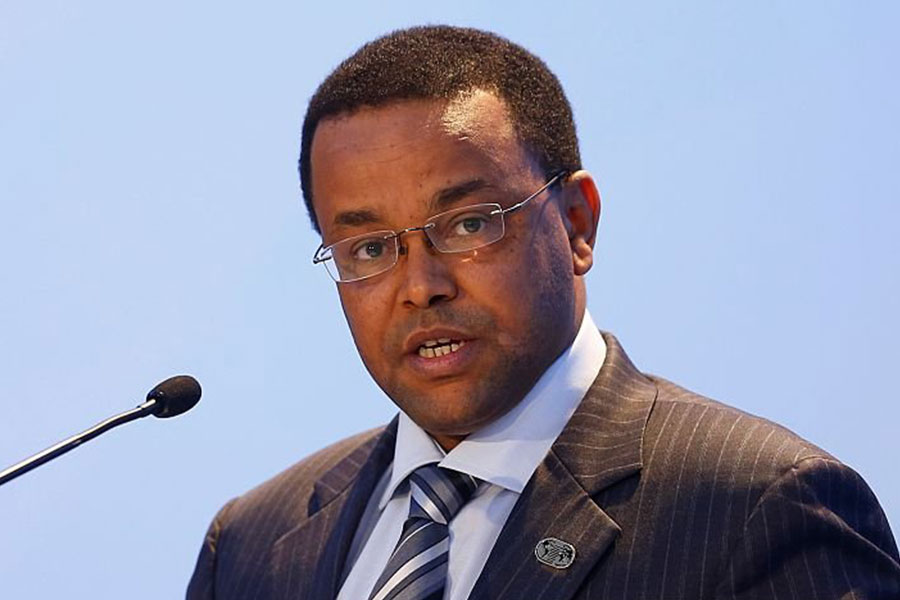
Fortune News | Jun 18,2022
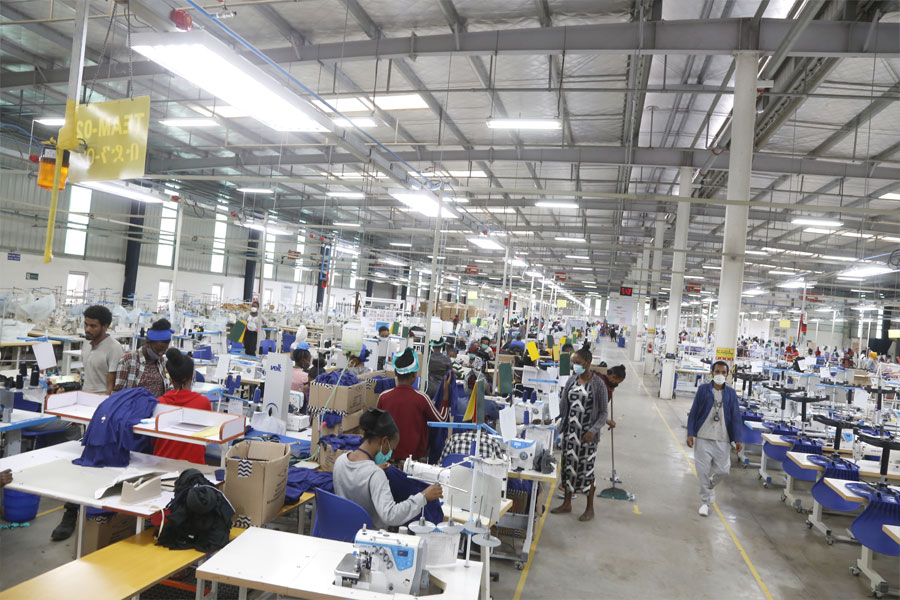
Fortune News | Sep 30,2023
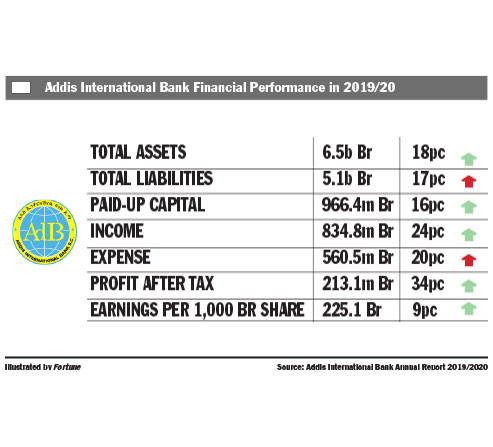
Fortune News | Apr 03,2021

Radar | May 03,2025

Featured | Oct 16,2021
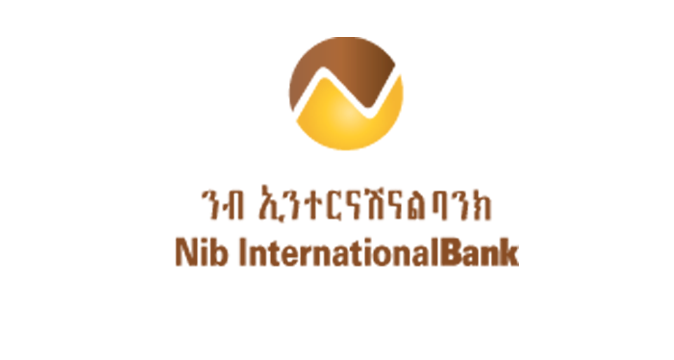
Fortune News | Oct 26,2019
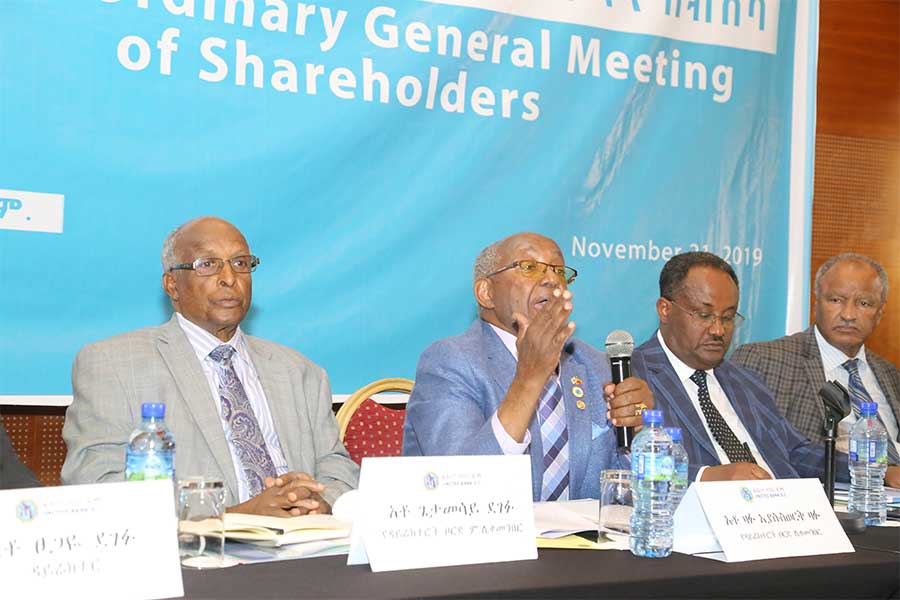
Fortune News | Dec 14,2019

Covid-19 | May 23,2020

Dec 22 , 2024 . By TIZITA SHEWAFERAW
Charged with transforming colossal state-owned enterprises into modern and competitiv...

Aug 18 , 2024 . By AKSAH ITALO
Although predictable Yonas Zerihun's job in the ride-hailing service is not immune to...

Jul 28 , 2024 . By TIZITA SHEWAFERAW
Unhabitual, perhaps too many, Samuel Gebreyohannes, 38, used to occasionally enjoy a couple of beers at breakfast. However, he recently swit...

Jul 13 , 2024 . By AKSAH ITALO
Investors who rely on tractors, trucks, and field vehicles for commuting, transporting commodities, and f...

Jul 5 , 2025
Six years ago, Ethiopia was the darling of international liberal commentators. A year...

Jun 28 , 2025
Meseret Damtie, the assertive auditor general, has never been shy about naming names...

Jun 21 , 2025
A well-worn adage says, “Budget is not destiny, but it is direction.” Examining t...

Jun 14 , 2025
Yet again, the Horn of Africa is bracing for trouble. A region already frayed by wars...